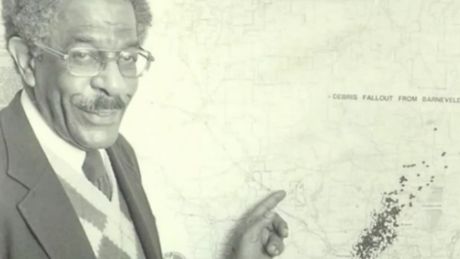RALEIGH, N.C. – Each week during Black History Month, Spectrum News 1 has been diving into North Carolina’s historic people, events and movements that laid the groundwork for change.
John Chavis was the first African American man to attend college in the United States
Between 1807 and 1808, Chavis moved to Raleigh where he opened and operated a public school teaching both white and Black children
John Chavis Memorial Park in Raleigh is one of several areas and buildings named in Chavis’ honor
Helping us along the way has been Zachary Lemhouse, the staff historian for the Culture and Heritage Museums of York County, South Carolina.
In this edition, Spectrum News 1 is looking back at the man behind a name you’ve likely heard: John Chavis.
“John Chavis war born around 1763,” Lemhouse said. “There are conflicting reports as to the location of Chavis’ birth. Some sources indicate that he was born in North Carolina and later moved to Virginia while others suggest that he was born in Virginia. It is also unclear as to whether Chavis was born free or enslaved.”
In December of 1778, he enlisted in the army and served as a Patriot soldier in the American Revolution.
Following the Revolution, Chavis became the first African American to attend college in the United States at the College of New Jersey, present-day Princeton University and Washington Academy in Lexington, Virginia.
The Lexington Presbytery awarded Chavis a “license to preach the Gospel,” making him the first African American to be licensed by the Presbyterian Church in the U.S.
Chavis later moved to Raleigh, between 1807 and 1808, where he opened and operated a public school out of his home, teaching both white and Black children.
“Initially, Chavis taught both Black and white children in the same classroom, but after receiving objections from white parents, he began teaching the white children during the day and the black children at night,” Lemhouse said.
Chavis did that until around 1831, until laws were passed in the wake of Nat Turners Rebellion that outlawed the teaching of Black children and made it illegal for African Americans to preach in public.
“Chavis has been lauded by historians as “one of the most extraordinary Black men in the Antebellum South," Lemhouse said.
To honor and commemorate Chavis, Raleigh has John Chavis Memorial Park. There are state historical markers in N.C. and V.A. and Washington and Lee University in Lexington, Virginia named one of their buildings named Chavis Hall in his honor.








